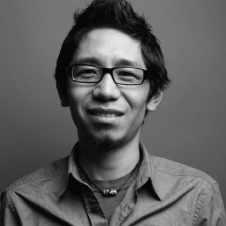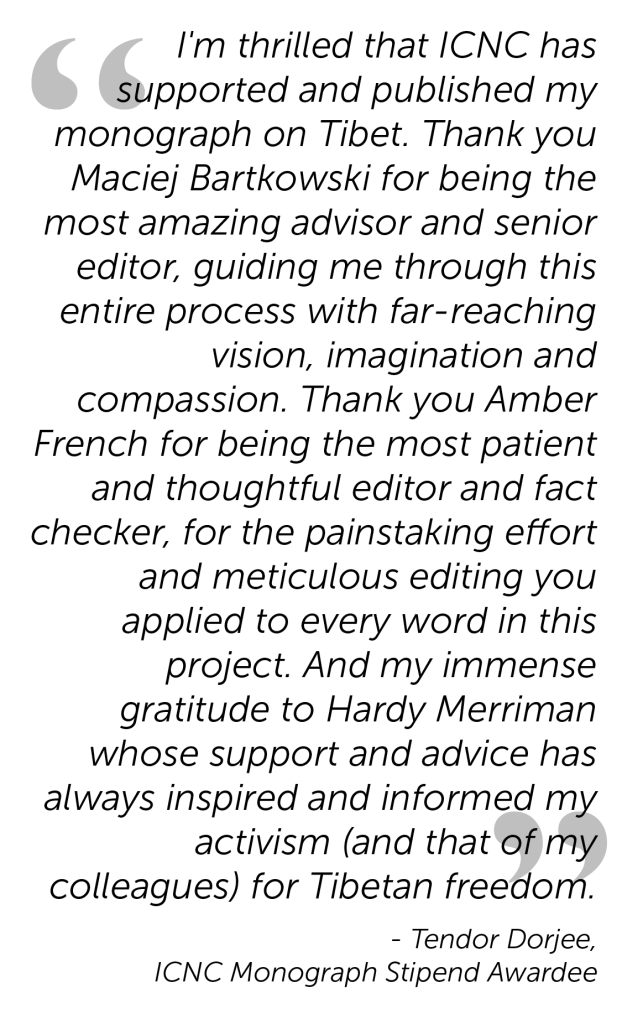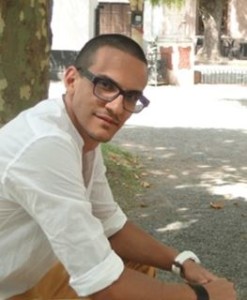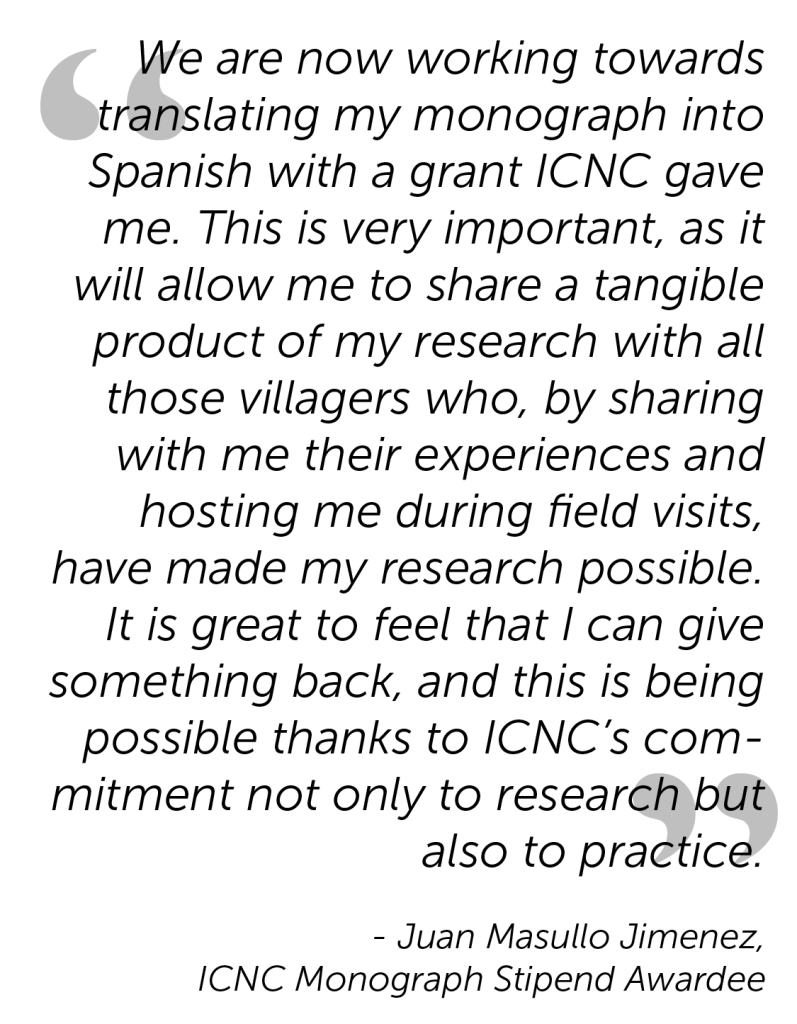For more information about these publications, or to download or purchase a copy, click here.
For its 2014 research monograph awards ICNC received more than 30 applications, a majority of each were unusually strong. After careful deliberation, ICNC has decided to offer twice as many awards to support innovative research in the field of civil resistance than it has initially been planned. This year, we have two female and two male awardees, each with unique experience in the practice and study of civil resistance. In their monographs, awardees will consider different case studies (including, among others, Tibet, Colombia, Maldives, Norway, Argentina) and/or problematize relevant phenomena (e.g. types of repression, a victorious civic movement that entered formal power to lead a political transition, or autonomous organizing of local communities that defy violent non-state groups). They will also provide an in-depth analysis of the history, role, strategies or the aftermath of the civilian-based nonviolent movements and civil resistance with practical recommendations for future scholarship, international policy and on-the-ground practice of civil resistance.
This year’s awardees include:

 Tenzin (Tendor) Dorjee is an activist and writer, and the former executive director of Students for a Free Tibet, a global network of students and activists dedicated to advancing Tibetan freedom and human rights. His writings have been published in various forums including the Huffington Post, Global Post, Courrier International, Tibetan Review, Tibet Times and the CNN Blog. He is a regular commentator on Tibet-related issues on Radio Free Asia, Voice of America and Voice of Tibet. Born and raised in India, he is a graduate of the Tibetan Children’s Village and Brown University. He worked at the National Endowment for Democracy in Washington, DC, before moving to New York to work at Students for a Free Tibet. He will be pursuing a Master’s degree in political science at Columbia University in fall 2014.
Tenzin (Tendor) Dorjee is an activist and writer, and the former executive director of Students for a Free Tibet, a global network of students and activists dedicated to advancing Tibetan freedom and human rights. His writings have been published in various forums including the Huffington Post, Global Post, Courrier International, Tibetan Review, Tibet Times and the CNN Blog. He is a regular commentator on Tibet-related issues on Radio Free Asia, Voice of America and Voice of Tibet. Born and raised in India, he is a graduate of the Tibetan Children’s Village and Brown University. He worked at the National Endowment for Democracy in Washington, DC, before moving to New York to work at Students for a Free Tibet. He will be pursuing a Master’s degree in political science at Columbia University in fall 2014.
The Tibetan Nonviolent Struggle: A Strategic and Historic Analysis
Abstract: This monograph studies the evolution of nonviolent resistance in the Tibetan freedom struggle and discuss key challenges facing it today. Beginning with the movement’s shift from a short-lived armed resistance to a nonviolent struggle, it examines how Tibetans sustained their resistance and advanced their cause in the face of overwhelming odds both at home and in exile over the last 60 years. By surveying historical and contemporary self-determination struggles in partitioned Poland, Western Sahara, West Papua, Palestine, and East Timor, the monograph discusses lessons learned and relevance for the Tibetan self-determination struggle.
The main focus of the monograph is on an era of cultural preparation that led to political revolution in the first decade of the 21st century, when the intersection of cultural and social trends across the Tibetan plateau culminated in the 2008 uprising. Highlighting the changing role of culture in the post-2008 Tibetan world, the monograph argues that one of the most significant developments in the evolution of Tibetan resistance is how Tibetans’ traditional view of ‘culture as a victim’ of China’s oppression has been replaced by their rediscovery of ‘culture as a weapon’ to fight oppression.
- ***Purchase a hard copy on Amazon (US$6.75).***
- Download the published manuscript in English.
- Download the published manuscript in Tibetan.
 Juan Masullo Jiménez is a Doctoral Researcher at the Department of Political and Social Sciences at the European University Institute (EUI). He is also an honorary member of the Consortium on Social Movement Studies (COSMOS) and an associate researcher at the Conflict Analysis Resource Center (CERAC). He studied political science and sociology at Javeriana University (Bogotá, Colombia), and holds Master’s degrees in International Relations (International Peace and Security) from the Institut Barcelona d’Estudis Internacionals (IBEI) and Political Science (Comparative Politics) from the Central European University (CEU).
Juan Masullo Jiménez is a Doctoral Researcher at the Department of Political and Social Sciences at the European University Institute (EUI). He is also an honorary member of the Consortium on Social Movement Studies (COSMOS) and an associate researcher at the Conflict Analysis Resource Center (CERAC). He studied political science and sociology at Javeriana University (Bogotá, Colombia), and holds Master’s degrees in International Relations (International Peace and Security) from the Institut Barcelona d’Estudis Internacionals (IBEI) and Political Science (Comparative Politics) from the Central European University (CEU).
His academic interests include civil wars, social movements, and more broadly, contentious politics. His current research explores the micro-dynamics and social processes of civil war, with a focus on civilian individual and collective behavior and decision-making processes. In his dissertation, he proposes a theory to explain the emergence of civilian non-cooperation in irregular civil war, as well as the form it takes when it emerges, exploring both conditions and micro-foundations.
 The Power of Staying Put: Nonviolent Resistance Against Armed Groups in Colombia
The Power of Staying Put: Nonviolent Resistance Against Armed Groups in Colombia
Abstract: In irregular civil wars, armed groups strategically aim to conquer, preserve and control territories. Residents of these territories respond in a wide variety of forms. Although the two dominant responses are to collaborate with the strongest actor or flee the area, civilians are not necessarily limited to these two choices. They may also opt to engage in organized nonviolent forms of noncooperation. However, given huge disproportionalities of force, it is still unclear why ordinary unarmed civilians choose to defy fully-armed opponents, let alone how they manage to overcome collective and coordination problems to act upon that choice.
This monograph examines this puzzle through a detailed case study of the Peace Community of San José de Apartadó, a sustained and organized nonviolent contestation led by ordinary peasants against state and non-state repressive actors in Colombia’s longstanding civil war. Building on interview and archival material collected in the field, a dataset on civilian victimization, and secondary literature, it explores the conditions under which this response emerged, focusing both on the preference for non-cooperation and the capacity for collective action. An improved knowledge of this under-theorized form of civil resistance can serve as a solid basis for the diffusion of these strategies both in other areas of Colombia and abroad, as well as for the design of post-conflict reconstruction strategies.
- ***Purchase a hard copy on Amazon (US$6.75).***
- Download the published manuscript in English.
- Read Masullo’s article “Villagers stand up for peace in Colombia’s civil war.”
- Read “Campesinos colombianos que defienden la paz” (en español).
- Download the published manuscript in Spanish.